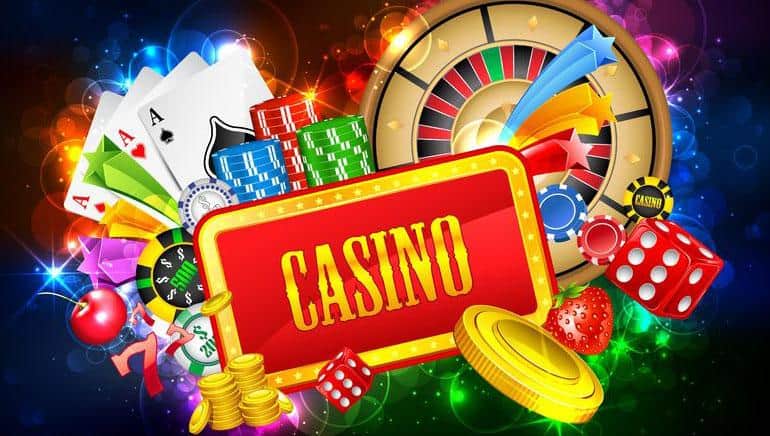
Casino entertainment have long been a engaging source of amusement, drawing countless of players from varied cultures around the globe. Karachi 777 From the glitzy casinos of the Strip to the bustling gambling halls of the Cotai Strip, these games serve as a common thread that unites people across various backgrounds. The allure of luck, strategy, and uncertainty entices not only those looking to strike it rich but also those in search of a shared experience.
The significance of casino games extends far beyond the gaming floor. They often reflect the social norms and traditions of the communities in which they prosper. Games such as seven-card stud, blackjack, and the spinning wheel have woven themselves into the mosaic of popular culture, influencing everything from films to style. As we explore this captivating intersection of chance and culture, we can comprehend better how these games shape and are influenced by the environment surrounding us.
Chronological Evolution of Gaming Activities
The origins of gaming activities can be traced back to historical cultures, where betting in different forms was extensively practiced. In the East, around 2300 BC, a type of gambling known as Keno was common, while in old the Roman Empire, soldiers would frequently bet on the outcomes of their matches. The notion of using luck for amusement and profit evolved over the years, leading to the creation of more formal activities. By the end of the Middle Ages, gambling houses initiated to appear in European nations, notably in Italy, which introduced early incarnations of famous games still practiced today.
As betting increased popularity in the continent, the 17th and 18th centuries saw the appearance of casinos as specialized establishments for betting. The initial official gaming venue, the Ridotto, was established in the city of Venice in sixteen thirty-eight, offering games like the game of Baccarat and the game Faro. This time marked a major turning point, as gaming venues began to attract not just the wealthy but also the growing middle-income class. The refinement of activities increased, leading to the development of new regulations and modifications that enriched the play experience.
In the 19th century, the industrial age and shifts in social standards also transformed the environment of gambling activities. The launch of the game of roulette and modern slot machines pulled in a larger audience, and casinos became seen as legitimate entertainment. This era witnessed the worldwide proliferation of gambling, as gambling houses expanded from Europe to the New World, culminating in the development of the famous Las Vegas Strip in the 1900s. The development of gaming games has progressed into the current era, including modern technology and online services, allowing them available to a global audience.
### Cultural Significance across Diverse Societies
Gambling games have significant cultural and social significance in many communities around the planet. Places like Las Vegas, the very core of the urban landscape is woven around gaming venues, where playing is not just a recreational activity but a fundamental aspect of social engagement and social interaction. The bright lights and lively atmosphere attract countless individuals, showcasing how games of chance can shape local economies and local cultures. This surrounding transforms the notion of recreation into an immersive encounter that affects apparel, music, and even cinema.
Conversely, some cultures view wagering with greater care, considering it through the lens of morality and heritage. For example, in numerous Eastern cultures, games like Mahjong and Pai Gow Poker are steeped in history and carry significant social implications. These games are often played during meetings and occasions, fostering collective connections and solidifying kinship ties. The act of playing these games goes past mere leisure, reflecting ethics such as honoring elders and the value of collective enjoyment.
At the same time, in continental countries such as Monte Carlo and Rome, games of chance serve as symbols of opulence and elegance. The stylish atmosphere of these establishments attracts both tourists and native inhabitants, reinforcing a sense of status and elitism. The art of poker and the strategic elements of games like the game of baccarat are appreciated, molding community relationships and cultivating an appeal that captivates a diverse audience. This underscores how casino games can concurrently mirror and influence societal views towards risk, benefit, and community interaction.
Economic Impact and Travel Industry
Casino games play a significant role in the economic landscape of many areas, particularly those that depend significantly on visitor traffic. The revenue produced from gambling establishments fuels local economies, creating jobs not only within the casinos themselves but also in connected industries such as hospitality, dining, and entertainment. This surge of tourists, drawn by the allure of gambling and the overall casino experience, stimulates spending across multiple businesses, contributing to the economic health of the area.
The existence of casinos often leads to the construction of infrastructure, including lodging, public transit, and recreational facilities. These improvements are essential in improving the overall visitor satisfaction, making destinations more attractive to tourists. Additionally, many casinos contribute in local communities through support of events and philanthropic initiatives, further embedding themselves into the community structure of the locality. Such contribution not only supports economic growth but also cultivates a positive reputation of the casino industry.
In addition, the global popularity of casino games drives competitive tourism, with locations vying to attract players from around the world. Iconic destinations like Las Vegas and Macau have become identifiable with casino culture, drawing millions each year. This advantage encourages innovation and variety within the gambling sector, influencing trends in leisure and hospitality that resonate beyond their borders. The ripple effects of this tourism extend far, impacting local financial health and cultural interactions on a global scale.